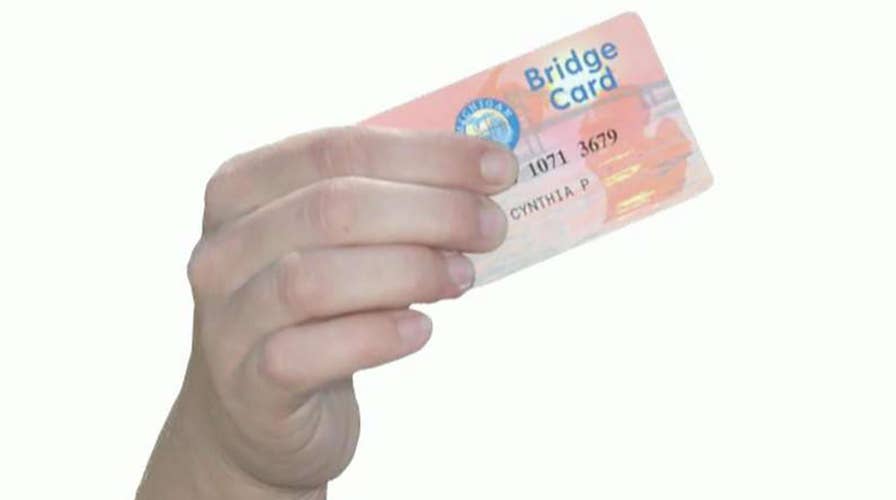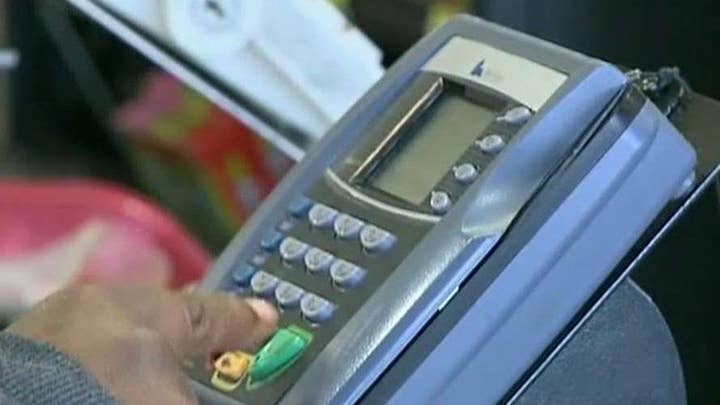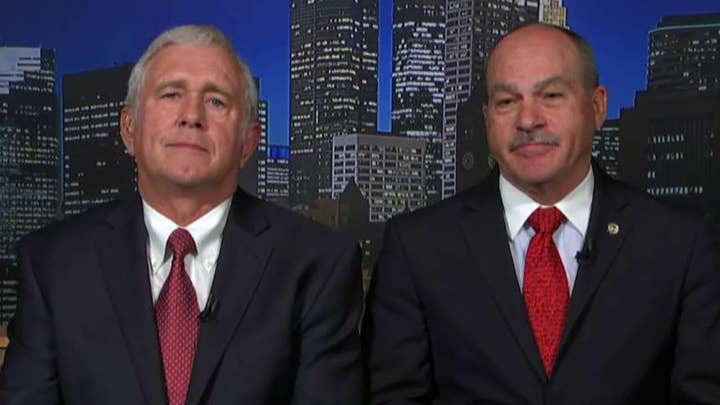Trump administration proposes new rule that would take millions off of food stamps
The rule would save taxpayers in total about $2.5 billion a year; Tracee Carrasco reports.
A proposed rule change for the food-stamp program, outlined this past week by the Agriculture Department, has highlighted the ideological clash between President Trump’s attempts to tighten government entitlement programs and efforts in some states to widen the social safety net.
Agriculture Secretary Sonny Perdue said the proposed rule change was intended to close a “loophole” that states have misused to “effectively bypass important eligibility guidelines.”
Current federal guidelines have forbidden people making more than 130 percent of the poverty level from getting aid through the Supplemental Nutrition Assistance Program (SNAP). However, officials in many states have said the cap was too restrictive, especially in cities with a high cost of living, prompting them to bypass the limits.
At issue is a federal policy allowing people who receive benefits through other government programs, such as Temporary Assistance for Needy Families (TANF) to automatically qualify for SNAP. The practice, called categorical eligibility, was intended partly to reduce duplicative paperwork, and also has allowed states to grant food aid to more people.
Under the Trump administration’s proposed rule change, people in any state would need to be authorized to receive at least $50 a month in TANF benefits for a minimum of six months to qualify automatically for SNAP. Subsidies for childcare, employment and work-related transportation would still count but the proposal would stop states from linking eligibility to the receipt of an informational brochure.
The proposed change also stirred outrage and uncertainty among some of the nation’s 36 million SNAP recipients who stood to be affected.
“I think it’s pretty rotten,” said Lisa Vega, a single mother of two teenage boys in suburban Chicago who applied for food aid last month after she lost her job. Because she received regular support payments from her ex-husband, Vega said her SNAP eligibility likely hinged on the income eligibility exceptions that Trump’s administration has aimed to end.
“A lot of these politicians don’t realize that us Americans out here are living paycheck to paycheck, one crisis away from being homeless,” Vega said. “You’re just going to take this kind of stuff away from us when we need it the most?”
Advocates for the poor have said states’ exceptions to federal guidelines helped people gradually transition off SNAP when they got modest raises at work and have enabled seniors and the disabled to save money without going hungry. Advocates also said the eligibility exceptions have helped people such as Vega whose income may be slightly above the federal threshold but who have little money left over after paying high housing and utility bills.
DE BLASIO CONTINUES FEUD WITH TRUMP, SAYS HE 'WILL NOT BE WELCOME BACK' IN NYC AFTER PRESIDENCY
“I think the Trump administration is trying to make a lot of hay out of how this policy option functions in practice to draw a lot of skepticism about it,” said Nolan Downey, an attorney at the Shriver Center on Poverty Law in Chicago who helped Vega apply for food aid. “But I think if people have an understanding of what the outcome really was meant to be, it’s something that seems a lot less dubious.”
The loopholes came under public scrutiny last year after self-described millionaire Rob Undersander testified before the Minnesota legislature that he and his wife legally received about $6,000 in SNAP aid over 19 months because his considerable assets and Individual Retirement Account withdrawals didn’t count against his eligibility.
CLICK HERE TO GET THE FOX NEWS APP
Undersander, who said he's a Trump supporter, told The Associated Press this week he had been trying to make a point — not game the system — and praised Trump’s administration for proposing to tighten eligibility standards.
“I think that states just found this loophole, and then I think they’ve been abusing a loophole,” Undersander said.
The Associated Press contributed to this report.
























